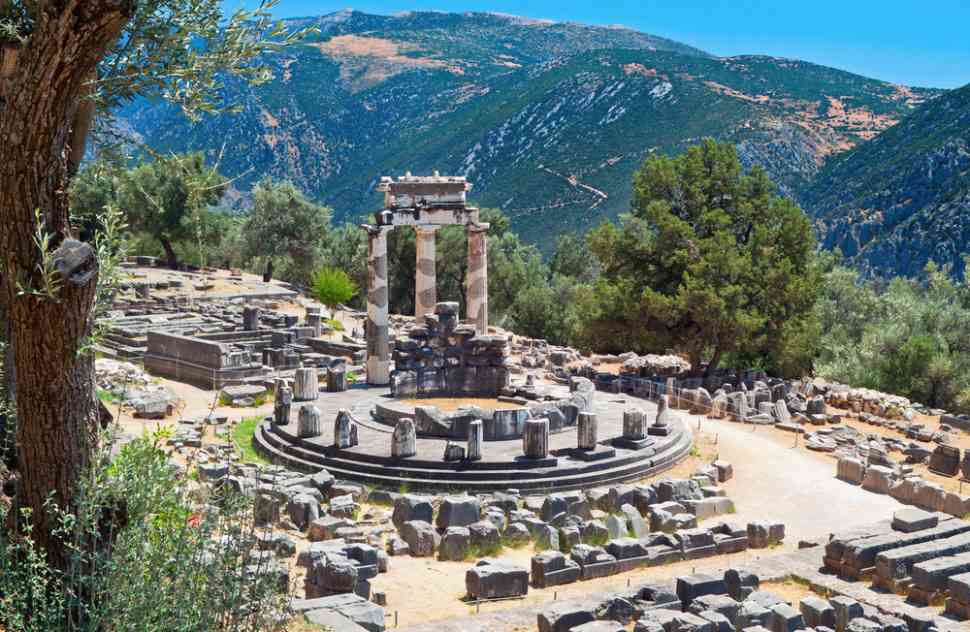Pythia and future’s prediction – a habit that lasts in time

Fortune-telling is as old as human history is Pythia was a great proof for that. But who was Pythia? Well, Pythia is not some particular fortune teller. It is more of a title given to the one who was each time the Chosen One of the god Apollo. Apollo was the God of art, light, and predictions and was also the protector of those who were sick.
According to professors in departments of classical archaeology, Pythia was the woman who formed the median between God and the faithful and was not accidental. Researchers believe that she must have been an oversensitive creature, who had the ability to venture into a state of cataleptic alienation, not only believing that she was communicating with God but also convincing others of it. So, it is clear that it was not just a single person who had the gift to predict the future neither was she a Goddess.
The whole ceremony would take place in Delphi. A magical place that inspired people for the sanity of the procedure. Probably the first Pythias or a certain woman in the Delphi had this charisma, which created the first Fame of the Oracle. Besides, the selection of Pythians by the priesthood must have been related to their faith and devotion to the worship of Apollo, which is why it was done only from the surrounding area. The population there must have lived in an atmosphere of extreme respect for God.
The certainty that Apollo considered that Pythia was the chosen one, would certainly affect the psychology of some women by cultivating a kind of predisposition to the conquest to become a Pythia. In other words, since Apollo could guarantee for her, any woman who would be chosen had already the confidence she needed since according to the beliefs she had God Apollo on her side and she was certainly special.
It is not improbable yet for the selection of the new Pythia to have followed a process like that which is done for the selection of a religious leader, such as the one of the Dalai Lama in Tibetan religion. That is, to choose a little girl, who was brought up with the necessary theoretical and practical teaching, so that she could deservedly undertake service in the temple, as soon as the previous priestess died.
Before she was called to predict Pythia was purified by the water of the Castalia spring. The same thing should happen to the temple, the priests, the staff of the shrine, the pilgrims. They should all be clean to help the communication with the Gods occur. In addition, the water from the spring would give Pythia a poetic and prophetic inspiration. Initially, Pythia served once a year, on Apollo’s birthday, on the 7th of the month of the Bush. Later, it served on the 7th of each month, except for the winter months when Apollo was supposed to be away.
The most interesting part about Pythia is that ancient Greeks chose a woman to take the role of the fortune-teller instead of a man. In ancient Greece, patriarchy was already a fact in society and men had a better place in the world like in most cultures. The fact that they believed that a woman could serve better for this role, proves that they considered women as more intuitive than men.
They could not trust this difficult task to a person who had been trained to fight in wars and had no connection with their inner world. Besides, often people wanted to ask if they would win a war or if they would come back alive. It would be awkward if a guy shared his ”advice” with another guy about what their future will be in the war. A woman could still be distant and gain people’s trust.
It is, therefore, apparent that in order for people to believe and respect their fortune-teller they had to think highly of them and have a special relationship that would not allow them to doubt them, otherwise, the answers to their questions would not count and people’s hearts would be filled with insecurity again. Pythia just like every fortune teller in the world was respected and adored and if there is one thing we cannot doubt, this is that people want to feel safe and reassured and they will do anything to achieve that.
Add CEOWORLD magazine to your Google News feed.
Follow CEOWORLD magazine headlines on: Google News, LinkedIn, Twitter, and Facebook.
This report/news/ranking/statistics has been prepared only for general guidance on matters of interest and does not constitute professional advice. You should not act upon the information contained in this publication without obtaining specific professional advice. No representation or warranty (express or implied) is given as to the accuracy or completeness of the information contained in this publication, and, to the extent permitted by law, CEOWORLD magazine does not accept or assume any liability, responsibility or duty of care for any consequences of you or anyone else acting, or refraining to act, in reliance on the information contained in this publication or for any decision based on it.
Copyright 2024 The CEOWORLD magazine. All rights reserved. This material (and any extract from it) must not be copied, redistributed or placed on any website, without CEOWORLD magazine' prior written consent. For media queries, please contact: info@ceoworld.biz
SUBSCRIBE NEWSLETTER








